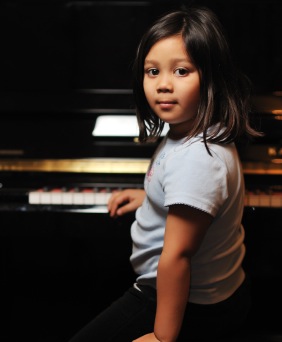My husband is a band director and music educator. He first heard about music therapy over 10 years ago–before we met–after getting his first college teaching job.
Given his first-hand experience of the power of music, he was very interested in learning about music therapy…and, more specifically, in the difference between music therapy and music education.
So he talked to this colleagues. And, over the years, one of them gave an interesting, simplified explanation of the difference between music education and music therapy:
Music education is “music learning.” Music therapy is “music re-learning.”
I’ve thought about this statement a lot. Do I agree with it…or not?
To an extent, it makes sense. Say you work in a rehab setting. You’re working with someone who has Parkinson’s and you’re using rhythm to help them “re-learn” how to walk. To re-teach their motor system to work more efficiently.
Or maybe you work in mental health. You’re working with an adult client, using music to help them understand their current thoughts and behaviors so they can “re-learn” new ones.
But what if you work with children? You can’t really say they’re “re-learning” something, because they haven’t learned it in the first place, right?
Chances are, though, that if you work with children, you’re helping them learn skills…in an adaptive way. With that in mind, perhaps this is a better distinction between the two:
Music education is “music learning.” Music therapy is “music re-learning and adaptive learning.”
I know this is an over-simplification. There are lots of nuances and complexities in our field that can’t be summed up in one statement. But as a profession, we also are looking for ways to define ourselves in terms the “layperson” can understand. So trying to create a concise statement like this can be helpful.
With that in mind, what are YOUR thoughts on this statement? Keeping in mind that this is a statement describing the difference between music therapy and music ed…what do you think fits? What do you disagree with? Please leave a comment in the boxes below to share your thoughts!



 orcid.org/0000-0001-8665-1493
orcid.org/0000-0001-8665-1493






{ 7 comments… read them below or add one }
Music education has essentially one function: to facilitate growth and improvement in one’s knowledge and skill in musical performance and appreciation. Music therapy has multiple functions- restoration, improvement, maintenance, prevention, and wellness- in which music is the tool for therapeutic outcomes. Okay, sure, anyone who’s taken 101 in music therapy knows and understands this. But I think a slightly tighter nutshell definition in distinguishing music in therapy as opposed to education would be to say that music education is “music-centered,” while music therapy is “person-centered.” Learning may or may not be part of the therapeutic experience, depending on the needs of the individual.
my 2c :o)
Thanks for the post Kimberly! When I have to quickly explain to someone the difference between music education and music therapy, I explain that the outcomes are what distinguish one from the other. In music education the outcome is musical (for example, learning a C Scale on piano), whereas with music therapy, the outcome is NON-musical (for example, improving fine motor skills). That seems to help! That definition of course can be expanded on, but it’s a good starting point, I hope!
@Anon Thank you! I like your “music-centered” v. “person-centered” distinction. It’s similar to @Amy talked about the “musical outcome” v. the “non-musical outcome” (Thanks Amy!). I understand your point that learning may or may not be involved. Maybe that was my initial hesitation about the first statement?
Hi Kimberly,
Thanks again for another great post! The term “music re-learning” reminds me of a question I get asked a lot when people find out that I am a music therapist (and especially recently while doing clinical work with veterans): “Do you teach musicians who have been injured how to play music again?” This question might be one of the main reasons I am hesitant to use the word “learning” when defining or describing music therapy to the layperson (except, possibly, as you mentioned, when working with children) — because it may not distinguish music education and therapy enough from one another. I really like how Amy (above) discusses music therapy in terms of musical vs. non-musical outcomes, and I frequently do this when I get asked the “What is music therapy?” question; I also like to mention a few methods (maybe songwriting, improvisation, lyric analysis, etc) in discussion.
Carolyn
@Carolyn I understand what you’re saying–I get asked that question, too! And the “music re-learning” does seem to imply it’s re-learning of musical skills as opposed to using music to re-learn. ~Kimberly
Hi Kimberly,
I’ve been checking your site for the past few months as I’ve been newly developing the MusicWorx Blog! You have wonderful insight to blogging, Music Therapy, and life in general! I’ve been enjoying your posts and it has been quite inspiring!
If you have a chance, take a look at the new and upcoming MusicWorx blog: http://www.musicworxinc.com/blog .
Thank you so much!
-Cara Brindisi
@Cara I will gladly and happily check out the new MusicWorx blog! Best of luck with it 🙂 ~Kimberly
You must log in to post a comment.